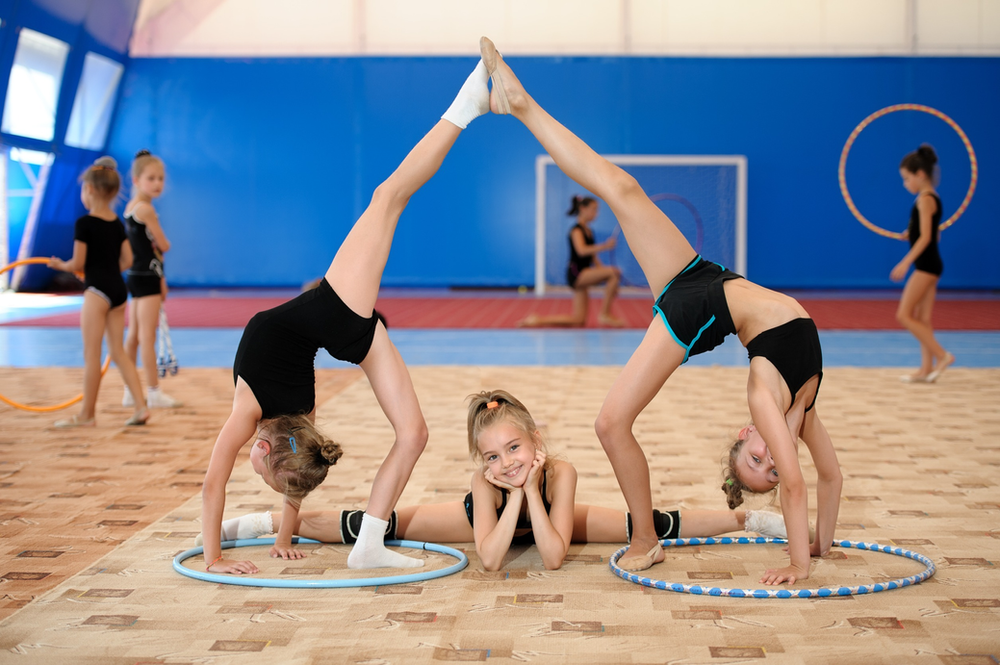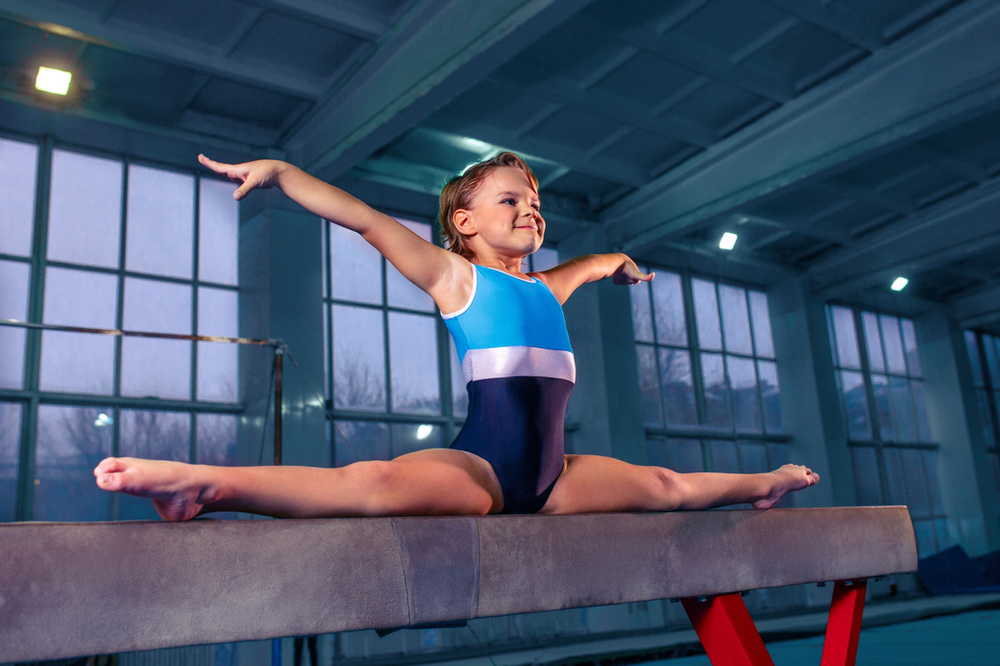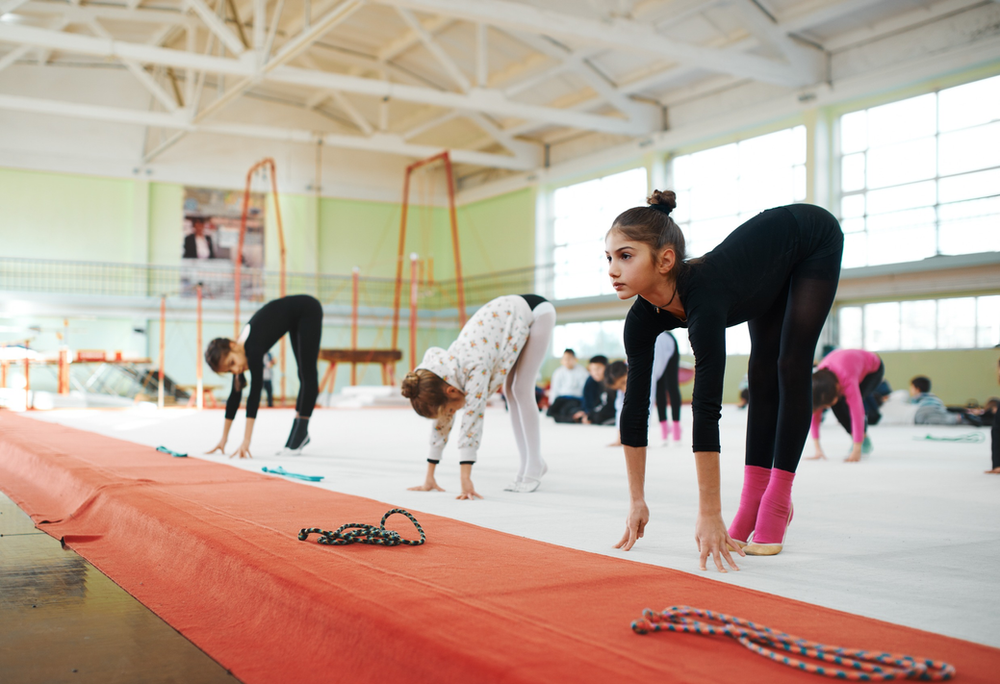From Cartwheels to Confidence Boosts: How Gymnastics Enhances Kids' Social Skills

Have you noticed how kids light up when they're doing something they love? For many children, gymnastics isn't just about flips and cartwheels—it's a nurturing ground for developing essential social skills.
If you're seeking the best article on gymnastics for Ninja Warrior in Lakeway, TX , look no further. This blog explores why enrolling your child in gymnastics could be one of the most beneficial choices for their social development. From teamwork to communication, we'll explore how this dynamic sport fosters skills that last a lifetime.
Building Teamwork Skills
Learning to Collaborate
Gymnastics might seem like a solo sport, but it involves a lot of teamwork. Children often train in groups, where they learn to work together, support each other, and celebrate collective successes. This forms the foundation for excellent teamwork skills.
Trust and Dependence
In activities like partner balances and group routines, trust becomes crucial. Kids learn to rely on each other, understanding that everyone has a role to play. This interdependence teaches them the value of mutual trust and cooperation.
Encouraging Peer Support
Cheering for teammates during routines fosters a supportive environment. Kids learn that lifting others up not only feels good but also strengthens their team spirit. This encouragement helps them build lasting friendships.
Enhancing Communication Skills
Verbal Interaction
In gymnastics, instructors often guide children through complex routines, requiring them to listen carefully and ask questions. This constant verbal interaction helps improve their communication skills.
Non-Verbal Cues
Gymnastics also involves a lot of non-verbal communication. Through body language and facial expressions, kids learn to interpret and convey messages without speaking, an invaluable skill in social settings.
Feedback and Constructive Criticism
Receiving and giving feedback is a regular part of gymnastics training. Learning to handle constructive criticism positively prepares children for similar situations outside the gym, fostering openness and effective communication.
Fostering Discipline and Responsibility
Adhering to Rules
Gymnastics has a structured framework, where following rules is essential. Kids learn the importance of adhering to guidelines, which translates to better behavior at school and home.
Personal Accountability
Each gymnast is responsible for their progress. This sense of accountability encourages children to take ownership of their actions, a trait that builds responsible adults.
Time Management
Balancing gymnastics with schoolwork and other activities teaches kids to manage their time effectively. This discipline helps them prioritize tasks and meet deadlines.
Boosting Self-Esteem and Confidence
Mastering Skills
Every new skill mastered in gymnastics boosts a child's confidence. The sense of achievement they feel after completing a routine or learning a new move can be incredibly empowering.
Overcoming Challenges
Gymnastics presents physical and mental challenges. Overcoming these obstacles teaches resilience and builds self-esteem, helping kids feel more confident in other areas of their lives.
Performance Opportunities
Participating in competitions and performances allows kids to showcase their skills. These events provide a platform for them to gain recognition and appreciation, further boosting their self-confidence.
Encouraging Healthy Competition
Striving for Personal Best
Gymnastics teaches children to compete against their own personal best rather than others. This mindset encourages self-improvement and reduces unnecessary rivalry.
Sportsmanship
Learning to win gracefully and lose graciously is a significant part of gymnastics. Kids understand that effort and participation are what truly matter, cultivating good sportsmanship.
Motivation and Goal Setting
Setting and achieving gymnastics goals motivates children and teaches them the value of hard work and perseverance. These goal-setting skills are applicable in various life scenarios.
Promoting Cultural Awareness
Diverse Teams
Gymnastics often brings together children from various cultural backgrounds. Training in such diverse teams helps kids appreciate different cultures and traditions.
Global Competitions
Competing in international events exposes children to different cultures and practices. This experience broadens their worldview and fosters global awareness.
Respect for Differences
Gymnastics teaches kids to respect and value differences, whether in skill level, background, or culture. This respect for diversity is crucial in today's globalized world.
Developing Leadership Qualities
Leading by Example
Older gymnasts often serve as role models for younger ones. Leading by example helps them develop leadership qualities and teaches them the importance of setting a good example.
Organizing Activities
Gymnastics camps and events often require senior gymnasts to take on organizing roles. These responsibilities help them develop planning and organizational skills, essential for effective leadership.
Mentorship
Mentoring younger gymnasts fosters a sense of responsibility and leadership. Older kids learn to guide and support their juniors, which enhances their mentoring skills.
Instilling Patience and Perseverance
Gradual Progress
Gymnastics involves gradual progress and improvement. This process teaches children the value of patience and perseverance, essential traits for success in any field.
Handling Setbacks
Facing setbacks and failures is a part of gymnastics. Learning to handle these disappointments helps kids develop resilience and the ability to bounce back stronger.
Celebrating Small Wins
Every small achievement in gymnastics is celebrated. This practice teaches kids to appreciate and celebrate their progress, no matter how small, fostering a positive outlook.
Encouraging Empathy and Compassion
Supporting Teammates
Gymnasts often cheer for and support each other. This practice fosters empathy and compassion, as children learn to care for and encourage their peers.
Understanding Challenges
Experiencing challenges themselves helps gymnasts understand what their teammates might be going through. This understanding fosters empathy and strengthens their bond.
Helping Each Other
In gymnastics, kids often help each other with techniques and routines. This willingness to assist fosters a sense of compassion and community.
Enhancing Focus and Concentration
Staying Present
Gymnastics requires intense focus and concentration. Practicing these skills in the gym helps children improve their ability to stay present and attentive in other areas of life.
Mindfulness
Mindfulness is a significant aspect of gymnastics. Learning to be mindful and aware of their movements and surroundings helps kids enhance their overall concentration and focus.
Reducing Distractions
Training in gymnastics teaches kids to block out distractions and stay focused on their goals. This skill is beneficial in academic settings and everyday life.
Creating a Sense of Community
Belonging
Being part of a gymnastics team gives children a sense of belonging. This feeling fosters a supportive environment where kids feel valued and understood.
Shared Goals
Working towards shared goals strengthens the bond between team members. This unity and camaraderie create a strong sense of community.
Celebrating Together
Celebrating achievements and milestones together fosters a sense of joy and togetherness. These shared experiences enhance the feeling of community among gymnasts.
Conclusion
Gymnastics is more than just a sport; it's a valuable platform for developing essential social skills. From teamwork and communication to leadership and empathy, the benefits are manifold.
Encouraging your child to participate in gymnastics can set them on a path to becoming well-rounded, socially adept individuals.
Ready to see how gymnastics can transform your child's social skills?
Austin Elite Gymnastics offers a plethora of benefits for children, from physical strength and flexibility to mental resilience and social skills. It’s an investment in their overall development and well-being.
If you’re considering an activity that promises to enrich your child’s life in multiple ways, gymnastics is an excellent choice. Enroll your little one in a reputable gymnastics program today and watch them thrive in all aspects of life.
Register for your free trial class today!




